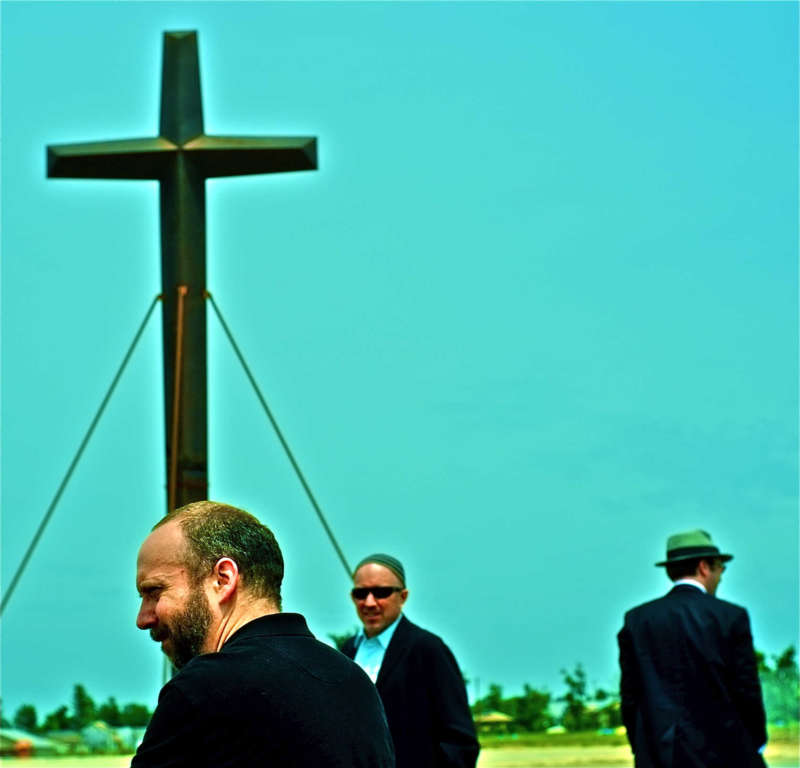Invitation Only
The Dionysus Project at the Department of Corrections
This event has ended.
View upcoming events.
Fri, Sep 27.2019
About the play
-
The Bacchae by Euripides
First produced in 405 BC, Euripides' Bacchae tells the ancient story of the arrival of Dionysus, the god of wine and intoxication, in Greece. When Dionysus comes to the city of Thebes, he liberates the people from their homes, sending the citizens - dancing and drinking - into the hills. A young king, named Pentheus, tries to subdue the revelry and restore order to his city, waging an all-out war against the god. But when Pentheus first tastes the drug that has ravaged his city, he too succumbs to its power and is murdered by his own mother, in a deranged state of intoxication.
Explore Projects
-
 Natural DisasterBook of Job
Natural DisasterBook of JobThe Book of Job Project presents dramatic readings by acclaimed actors of The Book of Job as a catalyst for powerful, guided conversations about the impact of natural and manmade disasters upon individuals, families, and communities.
-
 HomelessnessThe Oedipus at Colonus Project
HomelessnessThe Oedipus at Colonus ProjectThe Oedipus at Colonus Project presents readings of scenes from Sophocles’ final play, Oedipus at Colonus, as catalyst for powerful, community-driven conversations about homelessness, the immigration and refugee crisis, and the challenges of eldercare during and after the pandemic.
-
 GenocideThe Investigation
GenocideThe InvestigationTheater of War Productions and the Museum of Jewish Heritage, in partnership with the National Yiddish Theatre Folksbiene, present readings of scenes Peter Weiss' play The Investigation, a piece of documentary theater adapted from the Frankfurt Auschwitz Trials of 1963-1965. This project centers on guided discussions about mass murder and its lasting impact upon individuals, families, communities, and countries throughout the world. Performed by a diverse cast, including international performers from communities affected by genocide, The Investigation seeks to generate powerful dialogue across cultures and communities about the human capacity for evil, as well as the systems and hierarchies that create the conditions for unthinkable violence.